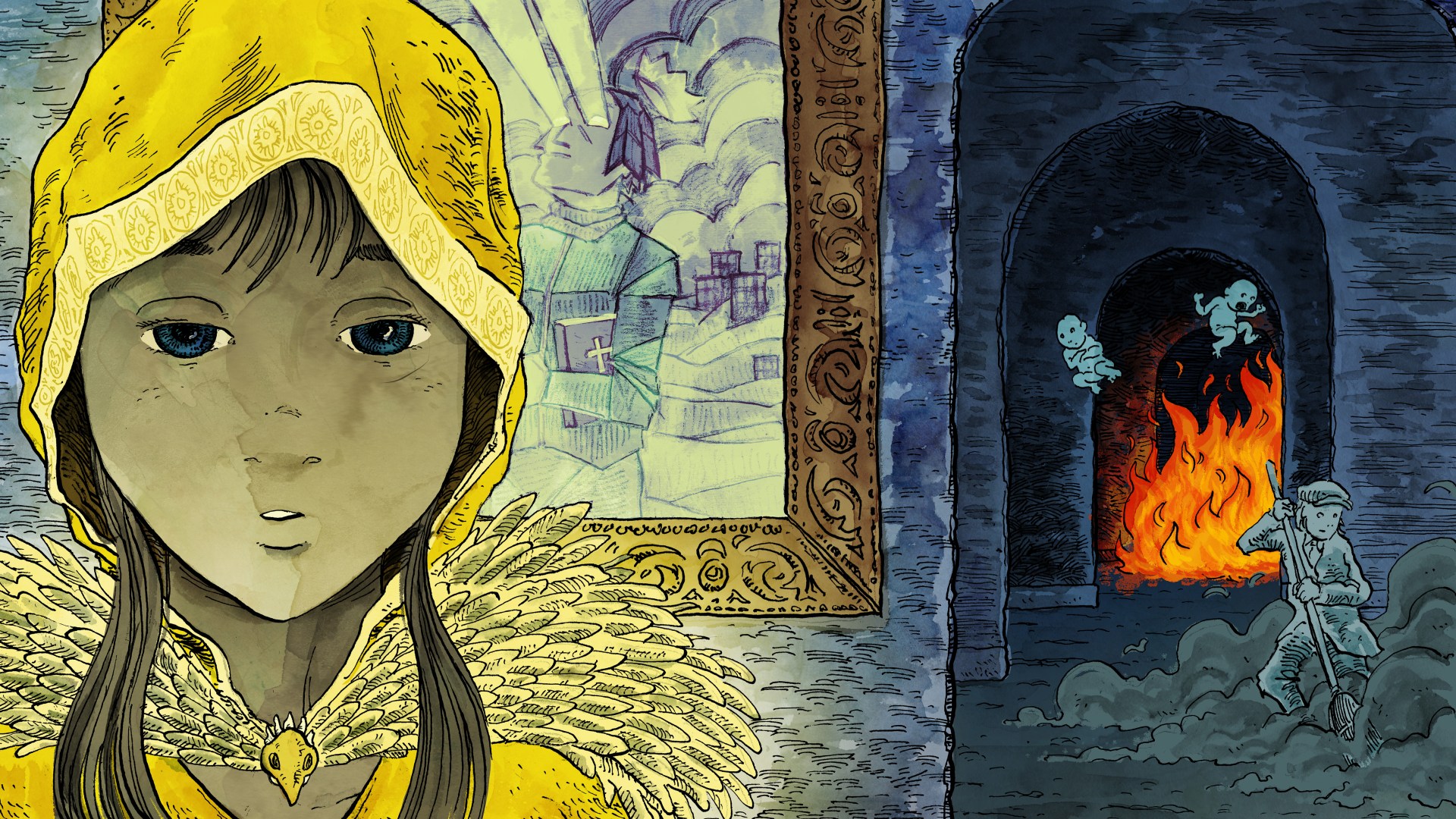This article was adapted from episode eight of The Way to Glory.
Each week on The Way to Glory, we take a fresh look at a character from The Pilgrim's Progress, John Bunyan's 300-year-old masterwork. Subscribe now in iTunes, Google Podcasts, or Spotify.
How do we navigate life? Is it by stumbling along, unaware, hoping for the best? Is it through painful lessons of trial and error? Or perhaps we have help from others, those who teach us how to handle volatile situations, make tough decisions, and interact with the world around us.
In The Pilgrim’s Progress, Interpreter fills this role for Christian, but curiously this mirrors the role Bunyan has been playing in our lives for the last seven weeks. On this final episode of The Way to Glory, we spoke about art, Bunyan, and this incredible work with Kristyn Getty, who in her own right is helping people wrestle with difficult questions in her work as a recording artist, worship leader, and voice of Interpreter in Revelation Media’s upcoming film The Pilgrim’s Progress.
"Sir," said Christian, "I am a man that has come from the city of Destruction and am going to the Mount Zion; and I was told by the man that stands at the gate at the head of this way, that if I called here you would show me excellent things, such as would be helpful to me in my journey."
Then said the Interpreter, "Come in; I will show you what will be profitable to you."
As Interpreter (a character depicted as male in the book but female in the film) leads Christian on a tour of the house, she explains strange images and occurrences happening in many of the rooms.
Interpreter took him by the hand, and had him into a little room, where sat two little children, each one in his chair. The name of the eldest was Passion and the name of the other Patience. Passion seemed to be much discontented; but Patience was very quiet.
Then Christian asked, "What is the reason of the discontent of Passion?" The Interpreter answered, "The governor of them would have him stay for his best things till the beginning of the next year; but he will have all now. But Patience is willing to wait."
Urgency buoys Interpreter’s words. As Interpreter teaches Christian how to understand the various scenes, Bunyan simultaneously teaches the reader how to probe at the layers of allegories to reveal the truth.
“Part of what it means to be human is to enjoy creative processes, to be curious, to develop our imaginations, and to tell stories,” says Getty, who feels an obligation in songwriting to both record the world around her and help others understand it. “People writing songs and telling stories is part of what holds the generations together; we can look back and learn from those who went before us. And we can find fresh ways to engage the culture that we live in.”
Bunyan, Interpreter, and Getty each seem to convey truth and help others navigate their way to it—in all of its multi-dimensional, multi-medium complexity. Interpreter forgoes a purely didactic approach with Christian. Rather than delivering a lecture, she allows Christian to engage his whole person in his surroundings—mind, heart, and body—and she makes herself available for questions and gentle nudgings as they walk around the house.
Similarly, Getty saturates her mind with Scripture as she pursues musicianship. “Even the creative elements in and of themselves—plot mechanics, melody, rhyme—point us to our Creator God as people made in his image.” For Getty, words are but one tool to teach truth. Just as Christian learns through exploring, asking questions, and only then hearing answers from Interpreter, listeners can see truth in a gentle harmony, the build of bridge, and, of course, in the lyrics of Getty’s songs themselves.
In order to direct others to truth, one must understand God and the human condition, to which Getty, Bunyan and Interpreter seem well attuned. As it has been read and circulated for over 300 years, The Pilgrim’s Progress resonates centuries later. And Bunyan, with over 500 references to Scripture, shows the human heart that drinks in the Bible’s words of life will pour them out as healing waters in the lives of others.
Interpreter and Christian’s time together reveals both the glorious and the frightening, including a room cleansed of dust by the sprinkling of water offering a parallel to Christian’s soul, a raging fire that the devil cannot quench, and an apostate man imprisoned in a cage. After the final sight, in which a man named Unready trembles in the face of the Day of Judgment, Interpreter addresses Christian.
"Hast thou considered all these things?"
Christian: “Yes: and they put me in hope and fear.”
Interpreter: “Well, keep all things so in thy mind that they may be as a goad in thy sides, to prick thee forward in the way thou must go.”
So Christian went on his way, saying: "Here I have seen things rare and profitable:
Things pleasant; dreadful things—to make me stable
In what I have begun to take in hand:
Then let me think on them, and understand
Wherefore they showed me were; and let me be
Thankful, O good Interpreter, to thee."
Bunyan, Interpreter, and Getty prompt us not to thoughtlessly accept characters, plotlines, or the complexities of life. Rather, they ask us to consider the layers of stories and songs, of Scripture and situations, as we seek the goodness, truth and beauty awaiting discovery. And only after a time of learning may we then create, through knitting, coding, or parenting, and may we always remember—and teach others—those lessons that first inspired hope and fear.
The Way to Glory is produced by CT Creative Studio in partnership with our sponsor Revelation Media and their upcoming movie, The Pilgrim's Progress, in theaters Easter weekend.
Posted Seth Hahne
Seth Hahne